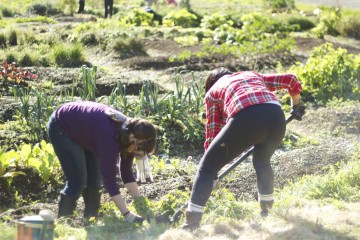 The Indigenous Research and Education Garden hosts internships each year to enrich its programming with in-depth student learning, providing students with the opportunity to gain hands-on experience and conduct their own research. Interns are eligible to receive course credit towards their UBC degree. Interns gain skills and experience in ethnobotany, working with traditional knowledge, medicines, and foods, intergenerational learning, communications, Indigenous research methodologies, and community collaboration. Their research and reflections provide evidence to improve these programs and to make future recommendations regarding student engagement.
The Indigenous Research and Education Garden hosts internships each year to enrich its programming with in-depth student learning, providing students with the opportunity to gain hands-on experience and conduct their own research. Interns are eligible to receive course credit towards their UBC degree. Interns gain skills and experience in ethnobotany, working with traditional knowledge, medicines, and foods, intergenerational learning, communications, Indigenous research methodologies, and community collaboration. Their research and reflections provide evidence to improve these programs and to make future recommendations regarding student engagement.
2017 Summer Student Internship Application is Open until April 25th | Xwc̓ic̓əsəm: Indigenous Health Research & Education Garden.
How to apply: email Dr. Eduardo Jovel, Director LFS Indigenous Research Partnership for more information: Indigenousgardenlfs.irp@ubc.ca
Reflections from the 2015 Interns
 “My absolute favourite part of my internship was participating in the community circles at the beginning and end of each Garden session. This practice was suggested by my internship partner Dancing-Water, and was a way of grounding us and volunteers in the Garden space. …It was really rewarding to hear their testimonies of experience, and I often left the Garden with the sense that the collective experience of sharing those thoughts was the most valuable lesson to be gained: one being cannot do all the work of caring for a community; it takes many strong, gentle hands and thoughtful minds to do that work.” [Read more] – Victoria Cooke, Indigenous Health Research and Education Garden Intern
“My absolute favourite part of my internship was participating in the community circles at the beginning and end of each Garden session. This practice was suggested by my internship partner Dancing-Water, and was a way of grounding us and volunteers in the Garden space. …It was really rewarding to hear their testimonies of experience, and I often left the Garden with the sense that the collective experience of sharing those thoughts was the most valuable lesson to be gained: one being cannot do all the work of caring for a community; it takes many strong, gentle hands and thoughtful minds to do that work.” [Read more] – Victoria Cooke, Indigenous Health Research and Education Garden Intern
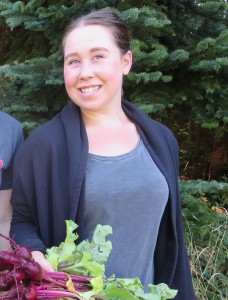
“Through the learning I’ve done this summer I’ve felt propelled into another facet of my learning. Looking at Indigenous food sovereignty, ethnobotany, language and land, it is all tied together once you’re out in the community experiencing these amazing initiatives. I am now even better equipped to think about land stewardship in a way that rejects colonialism. I am now better equipped as a linguist to understand the importance of biocultural diversity and what it means to “translate the land.” For now, I look forward to applying my kitchen knowledge to preserve more foods for the winter, creating nutritious meals for the winter months’ Feast Bowls. For now, I look to translate this knowledge into materials that will help guide the journeys of future interns, and help them gain insight into what I saw on my journey.” [Read more] – Jaylin Melnichuk, Feast Bowl Intern
 “Everyone looked forward to this day at the farm, for it gave all of us, CRUW staff and youth participants, a chance to get out of our routine and participate in new activities and workshops together. From gardening, medicine making, ceremony, cedar weaving and just being together, each session was full of growing, connecting and learning. It was wonderful to witness the change in the youth as they worked together on their gardens and learned from each other… CRUW and the wonderful people I got to work with added immensely to my personal and academic experience here in Vancouver, and the lessons that each of them taught me will always be in my heart.” [Read more] – Savannah Zachary, CRUW Intern
“Everyone looked forward to this day at the farm, for it gave all of us, CRUW staff and youth participants, a chance to get out of our routine and participate in new activities and workshops together. From gardening, medicine making, ceremony, cedar weaving and just being together, each session was full of growing, connecting and learning. It was wonderful to witness the change in the youth as they worked together on their gardens and learned from each other… CRUW and the wonderful people I got to work with added immensely to my personal and academic experience here in Vancouver, and the lessons that each of them taught me will always be in my heart.” [Read more] – Savannah Zachary, CRUW Intern
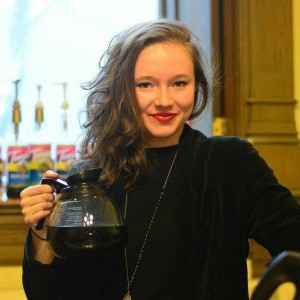 “What I had not fully anticipated was the extent to which the community members, Elders, staff, and volunteers… would be so overwhelmingly generous with their knowledge and their passion. I feel so grateful to have gotten to know, and learned from, so many wonderful people. A particular highlight for me was the ability to participate in the numerous workshops held at the garden. The Medicine Collective’s workshop on salve making was a particular favourite of mine, and taught me a lot about the different ways nature can heal and care for the body. The groups that participated in the Feast Bowl meal preparation taught me about the infinitely varied ways people relate to food.” [Read more] – Kendall Andison, Feast Bowl Intern
“What I had not fully anticipated was the extent to which the community members, Elders, staff, and volunteers… would be so overwhelmingly generous with their knowledge and their passion. I feel so grateful to have gotten to know, and learned from, so many wonderful people. A particular highlight for me was the ability to participate in the numerous workshops held at the garden. The Medicine Collective’s workshop on salve making was a particular favourite of mine, and taught me a lot about the different ways nature can heal and care for the body. The groups that participated in the Feast Bowl meal preparation taught me about the infinitely varied ways people relate to food.” [Read more] – Kendall Andison, Feast Bowl Intern
Reflections from the 2014 interns
 “I can say without a doubt that my experience working as a research intern for the CRUW program at UBC Farm was, for many reasons, a life-changing experience. …this experience highlighted that youth are sensitive and insightful; they are in tune with their surroundings and the ways that society influences their lives. Listening to the youth participants describing their visits to the farm as calming and reflective moments where they felt safe to explore their emotions, and to develop their understandings of their relationship with the earth, was a profoundly inspiring experience.” [Read more] –Erica Gibbons, CRUW research intern
“I can say without a doubt that my experience working as a research intern for the CRUW program at UBC Farm was, for many reasons, a life-changing experience. …this experience highlighted that youth are sensitive and insightful; they are in tune with their surroundings and the ways that society influences their lives. Listening to the youth participants describing their visits to the farm as calming and reflective moments where they felt safe to explore their emotions, and to develop their understandings of their relationship with the earth, was a profoundly inspiring experience.” [Read more] –Erica Gibbons, CRUW research intern
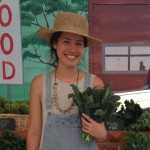 “This summer I found myself appreciating the concept of food as medicine. I have always understood it in my head, but it is pretty recent that I have started to understand it in my body. Growing up, I hardly ever ate organic, or local. Now that I am eating foods that I have a hand in growing, I feel better and more connected to my mind, body and spirit than ever. The plants take good care of us when we take good care of them, and this way of life is something I won’t ever give up.” [Read more] – Danette Jubinville, Indigenous Health Research and Education Garden Intern
“This summer I found myself appreciating the concept of food as medicine. I have always understood it in my head, but it is pretty recent that I have started to understand it in my body. Growing up, I hardly ever ate organic, or local. Now that I am eating foods that I have a hand in growing, I feel better and more connected to my mind, body and spirit than ever. The plants take good care of us when we take good care of them, and this way of life is something I won’t ever give up.” [Read more] – Danette Jubinville, Indigenous Health Research and Education Garden Intern
 “In addition to participating in the day-to-day activities with CRUW, I was able to learn about the complexities of doing research, especially with youth and within an Indigenous context. I really valued the moments of research where I was able to have one-on-one conversations with the youth about their experience with CRUW. I always felt honoured to listen to and witness their stories and was constantly humbled and inspired by the youth, by the depth of their insights, by the different connections they were forming with the land, and by the level of their awareness and self-reflection—even at ages as young as 12 years old.” [Read more] – Molly Billows, CRUW research intern
“In addition to participating in the day-to-day activities with CRUW, I was able to learn about the complexities of doing research, especially with youth and within an Indigenous context. I really valued the moments of research where I was able to have one-on-one conversations with the youth about their experience with CRUW. I always felt honoured to listen to and witness their stories and was constantly humbled and inspired by the youth, by the depth of their insights, by the different connections they were forming with the land, and by the level of their awareness and self-reflection—even at ages as young as 12 years old.” [Read more] – Molly Billows, CRUW research intern
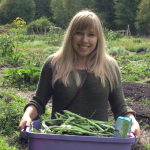 “For anyone interested in taking part in a community garden or a community kitchen program, I can attest to the incredible benefits these programs have to offer. The therapeutic nature of gardening, the connections you make in the community, the friends you meet, the food you learn to cook, and the food you get to enjoy and eat are all positive outcomes I have experienced dealing with community gardens and kitchens. I am truly thankful for the opportunity I have been given with this internship and I look forward to applying the knowledge I have learned to other aspects of my life.” [Read more] – Paulina Naylor, Feast Bowl Intern.
“For anyone interested in taking part in a community garden or a community kitchen program, I can attest to the incredible benefits these programs have to offer. The therapeutic nature of gardening, the connections you make in the community, the friends you meet, the food you learn to cook, and the food you get to enjoy and eat are all positive outcomes I have experienced dealing with community gardens and kitchens. I am truly thankful for the opportunity I have been given with this internship and I look forward to applying the knowledge I have learned to other aspects of my life.” [Read more] – Paulina Naylor, Feast Bowl Intern.
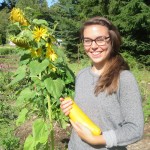
“As my internship with the Garden came to a close, I could see the transformation that happened to me. I could walk around the garden and describe plants to volunteers and community members, letting them know what the plants are good for and how we use them in our initiatives… All of these lessons came while we were working in the garden together, which became a generous classroom for all of us. Because of this internship, I now feel more connecting to the environment around me and I feel less like something is missing in my life.” [Read more] – Erica Baker, Indigenous Health Research and Education Garden Intern